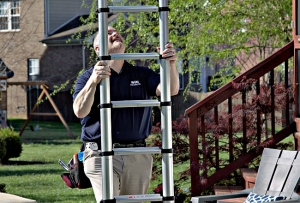I focus quite a bit of my research on how to help all businesses and organizations accurately anticipate the digital disruptions heading their way.
In recent writings, I have also discussed the importance of leaders finding the best ways to retain employees via incentives, involvement in innovation, and recognition of their fullest potential and future at the company.
I also connect with the other side of that coin, discussing the best ways in which leaders in a position to help employees recognize their own greatness do so in an Anticipatory fashion. This is accomplished time and again not only by creating a culture of searching for and leveraging Hard Trends with my Hard Trend Methodology, but by fostering that united Futureview® of positive disruption and creative critical thinking.
But what if I were to say that even though these efforts have proven to be successful over the course of my career, there is yet another characteristic of professional growth that is being overlooked in today’s rapidly accelerating digital age?
And Anticipatory Leaders, please be sure to take the following blog post into account as well. This directly relates to how you can retain your valued employees apart from offering them pay increases and other incentives.
The Stigma of “Slowing Down”
The Hard Trend of accelerating digital connectivity sparked a professional and personal culture that most have unknowingly adapted to.
Dating as far back as the personal computer and our access to the Internet in the ’90s, the speed at which we have access to information retrieval has transformed human behavior. Our conversation starters went from “Do you think” to “Did you know” in many cases, which perhaps made for more interesting dialogue at family dinners and other gatherings.
Years later, the smartphone entered our lives, and suddenly we became a culture of fact-checkers and digital socialites, sharing every drink we take and every move we make on Facebook, Instagram, Twitter, Snapchat, and any other derivative that suits us. We are a digital society, and a future certainty you can bank on is that we are not going backward, but only forward.
Having access to information is good in many ways. However, we now have a cultural stigma around slowing down, unplugging, and recharging. Indeed, doing so gives the impression that you are “falling behind” or even unable to keep up with the world today, leaving you outdated and irrelevant.
As more ways to connect to the “information superhighway” emerge and our connectivity gets better via 5G and eventually 6G and beyond, I believe this stigma will get worse if left unchecked. Children do not experience road trips with their family anymore while being plugged into their iPads, and couples I see out to dinner spend an unfortunate amount of time checking their social feeds while out on a date night.
To each their own; however, what we are starting to notice is the amount of time we are in fact “plugged in” to our personal devices and the connectivity provided to us, for fear that we are somehow being left out of the loop by setting those devices aside, is actually permeating to our professional lives in more ways than most realize.
Digital Exhaustion is Real
The fact of the matter is that regardless of where you work or what professional walk of life you find yourself in, you use digital technology in so many ways at your job or as a business leader. But in addition to that, focus for a moment on just how many digital devices are in your personal life as well.
I do not personally need to know your number to estimate that what you see in your mind is a lot of screen time! I am not kidding when I say that digital exhaustion is real!
While I am aware that humans adapt to the ever-changing environment around us — an instinct that has evolved over the years — we quickly grow tired from being so connected all the time. In turn, this does affect how we perform at work, since much of our work is now completely integrated with the digital world.
Everyone Must Find Their Balance
I am by no means saying to throw away all your digital devices and go live “off the grid,” so to speak. But I am encouraging all business leaders, middle managers, and entry-level employees to find a balance between the digital devices you use and the life we once knew without them.
How can this principle be incorporated into a business or organization, especially when so much of your job is digital? As a business leader or a manager who has a team of individuals, consider planning simple lunch breaks together every now and again, get to know your employees, and then in turn orchestrate team building opportunities at convenient times for your employees.
There currently is and will be an uptick in hands-on, activity-based businesses, such as indoor axe throwing or go-kart tracks, which correlates to the concept of cycles that I discuss. The more digital our world gets, the more we will crave something different. Capitalize on that as an employer or a leader to help your team avoid digital exhaustion and ultimately, burnout.
For those who are employees, efforts to take a break from digital devices in your personal life are where you can help yourself reset. Recently, service provider US Cellular has introduced “US Mode,” where you can actually disable most features on your mobile device for a certain period of time or allow it to continue to play music while alerts are silenced. But remember: This is up to you to enable. You have to make the choice to find personal balance.
It is great to find mastery in your career, or to know how to utilize all the great digital technology available in our professional and personal lives. But I want you to remember: Simply put, too much of something is never a good thing. We need water to live, but too much can cause harm.
Finding personal balance will ultimately improve your professional success, as you will have reset and found a way to remember that life and your career can move forward only so long as you are happy, healthy, and at peace.
Agent Resource
|
||||||
What's New

From buying and selling advice for consumers to money-making tips for Agents, our content, updated daily, has made Realty Times® a must-read, and see, for anyone involved in Real Estate.















